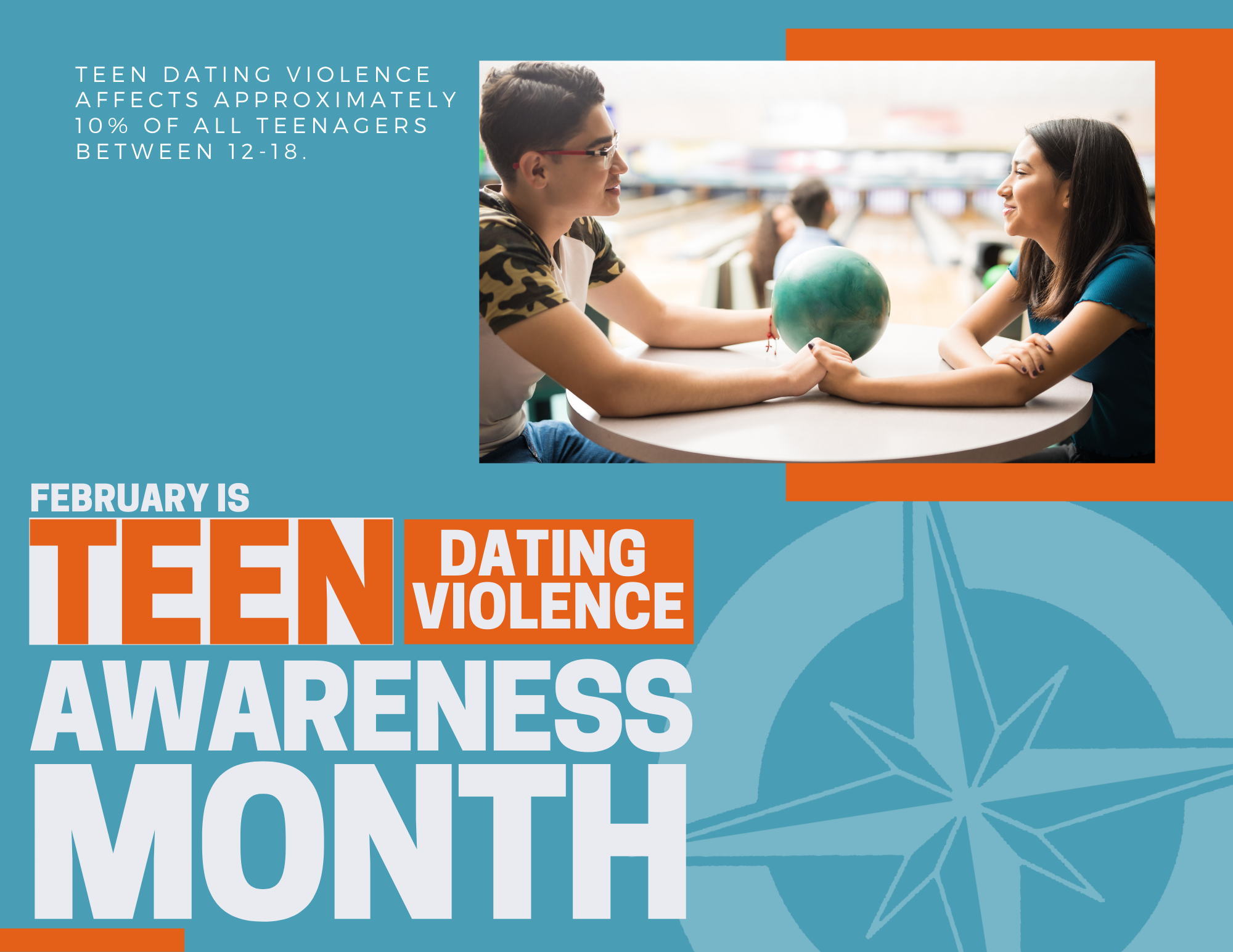February is National Teen Dating Violence Awareness month. During the month of February, Options is dedicating time to bringing awareness to the impacts of teen dating violence and highlighting our support for survivors of abuse. Teen dating violence is an issue that impacts everyone – not just teens – but also their parents, friends, teachers, and the community as a whole.
According to the Centers for Disease Control and Prevention (CDC), nearly one in nine female teens and one in 13 male teens report experiencing physical dating violence. Additionally, approximately one in seven female teens and one in nine male teens report that they have experienced sexual dating violence.

Teen dating violence is not limited to in-person interactions, either. With the rise of technology and the popularization of social media, another form of dating violence has gained prevalence in teen communities – stalking. A 2020 analysis published in the journal Youth & Society found that 48 percent of 12 to 18-year-olds who have been in a relationship have been stalked or harassed by a partner.
The impact of these unhealthy relationship dynamics during adolescence can disrupt emotional development and contribute to other long-term negative effects. According to the CDC, teens who experience dating violence are more likely to exhibit antisocial behaviors, engage in unhealthy behaviors such as tobacco, drug and alcohol use, experience depression and anxiety, and consider suicide. These symptoms can continue into adulthood, meaning that a long-term consequence of unhealthy relationships in adolescence is an increased risk for problems in future relationships. For example, individuals who experience dating violence in high school are more likely to be revictimized in college or within the workplace.
Signs of teen dating violence include (but aren’t limited to):
- Checking their partners phone, email, or social media accounts without their permission.
- Explosive outbursts, temper, or mood swings.
- Putting their partner down frequently, especially in front of others.
- Isolating their partner from friends or family (physically, financially, or emotionally).
- Extreme jealousy or insecurity.
- Any form of physical harm.
- Possessiveness or controlling behavior.
- Pressuring their partner or forcing them to have sex.
So, what can you do?
TALK TO TEENS!
If you’re a parent, create a safe space where you can have these discussions with your teenager. As a parent, you’re a crucial part of helping them develop healthy relationships and providing the support necessary to build their confidence to leave the bad ones. Teens can be tricky, so it is important to maintain trust between you and your child – which means you should do your best to respect their decision making even if you disagree with them.
If you’re a teen and you suspect your friend may be in an abusive relationship, find an opportunity to bring it up to them. Relationships exist on a spectrum, and it can sometimes be hard to tell when a behavior goes from healthy to unhealthy and abusive. Dating abuse is a pattern of coercive, intimidating, or manipulative behaviors used to exert power and control over a partner. Giving your friend the space to safely express their concerns without judgement is crucial. If you can, find an adult you trust to also share your concerns with. It’s always better to be safe than sorry.

Look out for additional information involving Options events for Teen Dating Violence Awareness Month! facebook.com/OptionsHays
If you need any additional information, have a question, or a concern, feel free to reach out to Options at our 24-hour toll-free helpline 800-794-4624. You can also reach an advocate via text by texting HOPE to 847411 or click 24-Hour Chat with Options.
Written by Anniston Weber


